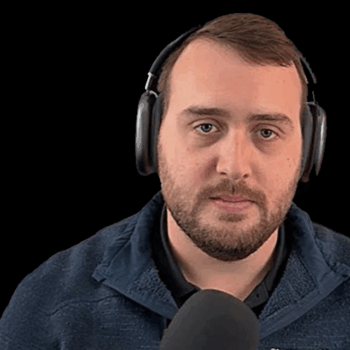

The COVID-19 pandemic has not only impacted physical health but has also taken a toll on mental well-being. In this article, we delve into an insightful interview with Dr. Gary Sidley, a retired consultant psychologist from the UK, who provides a comprehensive analysis of the use of behavioral nudge techniques during the pandemic. Dr. Sidley highlights the collateral damage caused by COVID-19 restrictions and raises concerns about the ethical implications of employing nudges. This article aims to shed light on the importance of transparency, and informed consent, and review the government’s use of behavioral science on its people.
Table of contentsBackground and SkepticismFear, Misinformation, and ManipulationChallenging the Mainstream NarrativeCollateral Damage and NudgesUK Government’s Use of NudgesHigh Levels of Anxiety and FearUnintended Consequences of NudgesEthical ConsiderationsReviewing the Government’s Use of NudgesReluctance to Engage in DebateConclusionFAQsRelated Articles:
Background and Skepticism
Dr. Gary Sidley, drawing upon his background in mental health services and risk assessment, expresses his early recognition that the government’s preventive measures during the pandemic would not be effective. Based on his experience in the NHS and research, Dr. Sidley explains his skepticism and highlights the challenges of predicting and assessing risk in mental health services.
Fear, Misinformation, and Manipulation
Dr. Sidley discusses how fear, misinformation, and corruption can make individuals more susceptible to manipulation and nudges during a pandemic. He questions the motives of big pharma and political classes, emphasizing the need to keep risks in perspective. While acknowledging the potential utility of vaccines and antibiotics, he raises concerns about the symbiotic relationship between these industries and the public’s best interest.
Challenging the Mainstream Narrative
The interview covers Dr. Sidley’s involvement with organizations such as the Health Advisory and Recovery Team (HEART) and Smile Free, which challenge mandates like mask-wearing in healthcare settings. He highlights the prevalence of misinformation and propaganda and expresses his concerns regarding the lack of opportunity to challenge the mainstream narrative in democratic societies.
Collateral Damage and Nudges
The conversation turns to the collateral damage caused by COVID-19 restrictions, including the neglect of cancer patients, increased opiate deaths, and the psychological impact of prolonged school closures. Dr. Sidley introduces the concept of “nudges,” psychological techniques that operate below individuals’ conscious awareness, and provides examples of nudges employed during the pandemic, such as emotive advertising and social proof.
UK Government’s Use of Nudges
Dr. Sidley discusses how the UK government utilized behavioral science-based nudges to promote compliance with COVID-19 regulations. He highlights the use of emotional messaging, authority figures, and even shame and vilification to encourage adherence. However, he expresses concern over the ethical implications of such tactics and emphasizes the need for informed consent, transparency, and clear goals.
High Levels of Anxiety and Fear
Dr. Sidley addresses the high levels of anxiety and fear experienced by individuals during the pandemic. He shares his experiences engaging with people wearing masks in public, questioning the effectiveness and long-term plans for mask-wearing. Dr. Sidley suggests that masks were initially promoted to enforce normative pressure rather than being solely driven by scientific evidence.
Unintended Consequences of Nudges
The interview reveals the unintended consequences of behavioral science and nudges during the pandemic. Dr. Sidley recounts stories of people avoiding hospitals, the detrimental effects of loneliness on the elderly, and the impact of prolonged school closures on children’s educati…
Discover more from Randy Bock MD PC
Subscribe to get the latest posts sent to your email.























